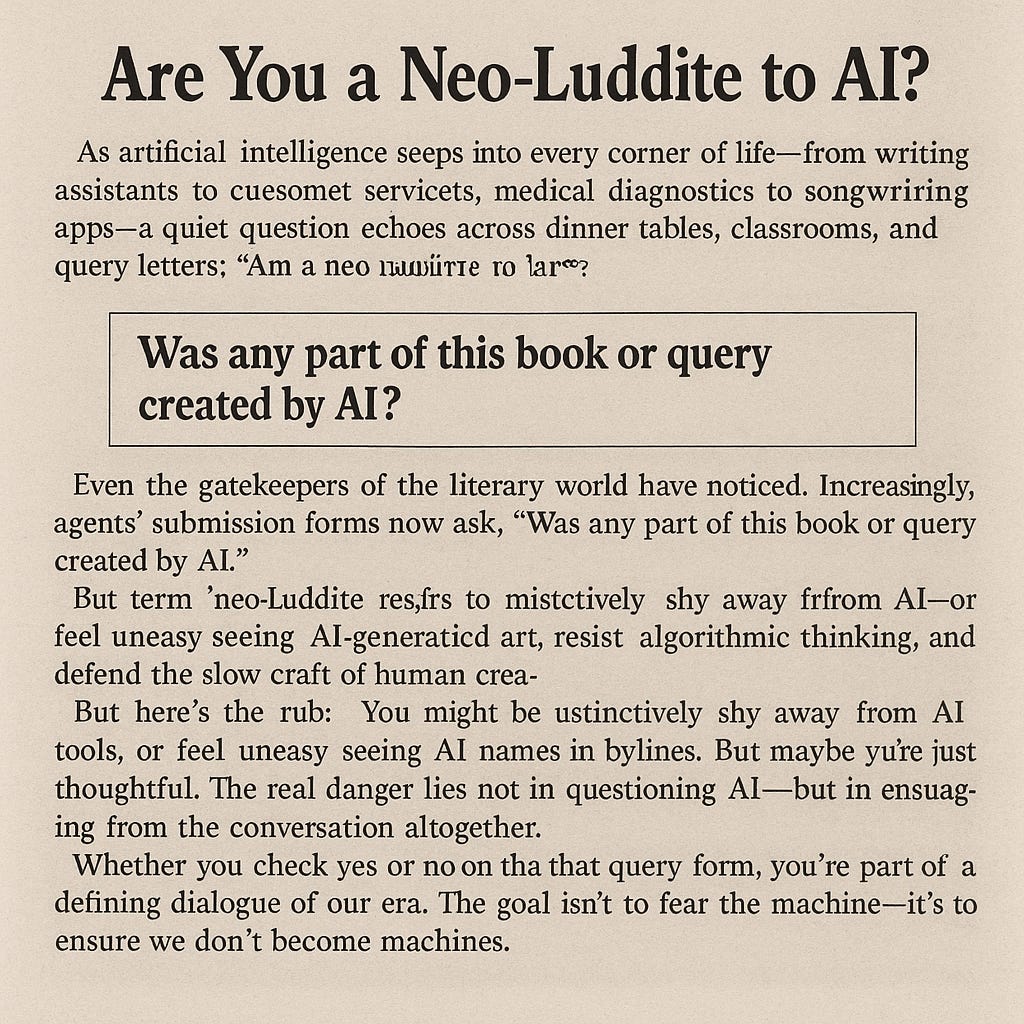As artificial intelligence seeps into every corner of life—from writing assistants to customer service bots, medical diagnostics to songwriting apps—a quiet question echoes across dinner tables, classrooms, and query letters: Am I a neo-Luddite to AI?
Even the gatekeepers of the literary world have noticed. Increasingly, agents’ submission forms now ask, “Was any part of this book or query created by AI?” It's a subtle but telling shift, reflecting both intrigue and unease. What was once a science fiction trope is now a checkbox reality.
The term “neo-Luddite” refers to modern critics of technology, echoing the 19th-century Luddites who smashed textile machines in protest of labor displacement. Today’s neo-Luddites don’t destroy servers—but they may reject AI-generated art, resist algorithmic thinking, and defend the slow craft of human creativity.
But here's the rub: skepticism doesn’t always equal technophobia. Is it “Luddite” to ask who owns the data used to train AI? Or to wonder whether an algorithm can understand nuance, grief, or joy? These aren’t backward questions—they’re responsible ones.
You might be a neo-Luddite if you instinctively shy away from AI tools, or feel uneasy seeing AI names in bylines. But maybe you’re just thoughtful. The real danger lies not in questioning AI—but in disengaging from the conversation altogether.
Whether you check yes or no on that query form, you’re part of the defining dialogue of our era. The goal isn't to fear the machine—it’s to ensure we don’t forget what it means to be human.





